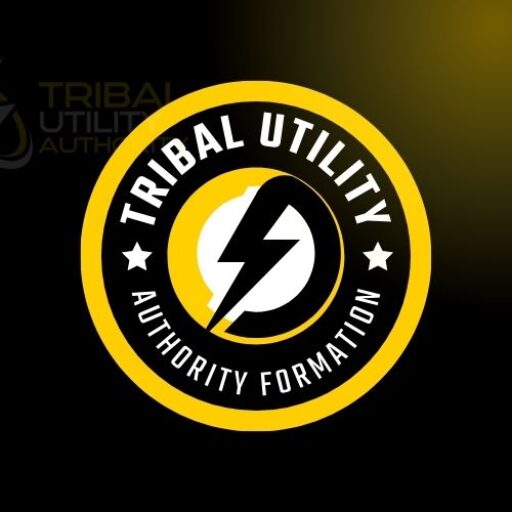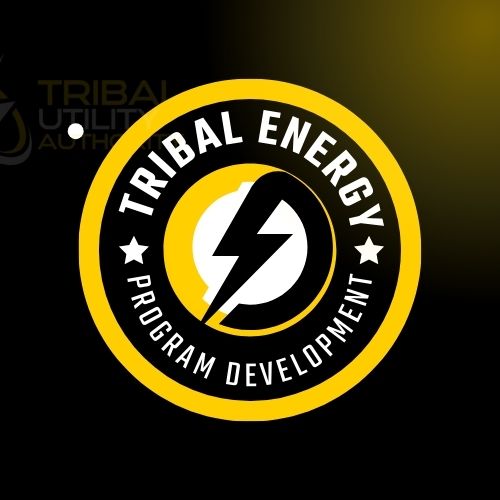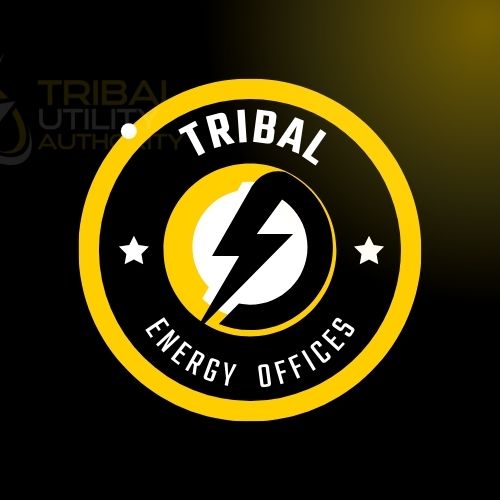Tribal Utility Authority Part XXXI: Understanding DOE Regulations For A Tribal Utility Authority
Tribal Utility Authority | Powered By Red Power Energy
TUA Experts
+1 855-573-3769
Good >Better>Best Options
Understanding DOE Regulations
Department of Energy (DOE) regulations create a comprehensive framework affecting tribal utility operations through multiple programs, requirements, and support mechanisms. These regulations touch every aspect of energy-related utility services, from generation and distribution to efficiency and security. Understanding and effectively managing DOE requirements helps tribal utilities maintain compliance while accessing valuable resources that support operational improvement and community development.
Energy efficiency standards establish fundamental requirements affecting both utility operations and community services. These standards encompass everything from equipment specifications to building requirements, creating a comprehensive approach to energy conservation. Appliance efficiency requirements impact both utility operations and customer programs, demanding careful attention to equipment selection and replacement planning. Building energy codes, while often implemented through tribal authorities, must align with DOE requirements to maintain funding eligibility and program participation. Experience shows that comprehensive efficiency programs not only ensure compliance but also significantly reduce operational costs while supporting community sustainability goals.
Grid reliability requirements form crucial elements for utilities operating electrical systems. These requirements establish detailed standards for transmission and distribution system design, operation, and maintenance. System planning must address both immediate operational needs and long-term reliability considerations. Regular testing and maintenance programs require careful documentation to demonstrate compliance while supporting reliable operations. Coordination with regional reliability organizations helps maintain appropriate standards while accessing valuable technical resources. Many utilities find that systematic reliability programs prevent service problems while supporting community development.
Renewable energy programs offered through DOE provide significant development opportunities for tribal utilities. These programs combine funding support with technical assistance, creating valuable resources for sustainable energy development. Project planning requires careful attention to program requirements while maintaining alignment with tribal priorities. Implementation support through various DOE initiatives helps ensure successful project completion. Technical assistance programs provide valuable expertise for both planning and implementation phases. Experience shows that effective use of renewable energy programs helps build tribal energy independence while supporting environmental goals.
Grant programs demand systematic management approaches that combine careful planning with thorough documentation. Multiple DOE grant opportunities support various utility activities, from infrastructure development to program implementation. Application processes require detailed planning and a clear demonstration of project benefits. Implementation management needs systematic approaches to ensure both project success and compliance maintenance. Regular reporting demonstrates proper fund use while documenting project benefits. Many utilities find that comprehensive grant management systems help maximize funding benefits while preventing compliance problems.
Technical assistance resources support multiple utility activities through various DOE programs. Engineering support helps address both planning and implementation challenges. Operational assistance provides valuable guidance for system optimization and problem resolution. Training programs help build staff capabilities while maintaining required certifications. Regular communication with DOE technical resources helps identify and access available support. Experience shows that systematic use of technical assistance improves operational capabilities while reducing implementation problems.
Energy security measures protect critical infrastructure through comprehensive planning and implementation programs. System assessments help identify vulnerabilities requiring protection measures. Physical security programs combine infrastructure protection with access control systems. Cybersecurity requirements demand increasing attention as systems become more interconnected. Emergency planning addresses both immediate response needs and long-term recovery capabilities. Regular security updates maintain protection effectiveness while addressing emerging threats. Many utilities find that comprehensive security programs prevent operational disruptions while protecting community interests.
Reporting obligations require systematic management to ensure timely submission of required information. Energy consumption data needs regular collection and verification before submission. Program results require clear documentation demonstrating compliance with requirements. Various operational reports need careful preparation to meet specific format requirements. Quality control measures help ensure accurate reporting while preventing submission problems. Regular report reviews help identify potential issues before submission deadlines. Experience shows that efficient reporting systems prevent administrative problems while maintaining program eligibility.
Documentation systems support both immediate compliance needs and future verification requirements. Clear records of regulatory requirements help maintain compliance understanding. Activity documentation demonstrates proper procedure implementation. Result records provide evidence of requirement achievement. Various program elements need systematic documentation to ensure complete compliance demonstration. It is important to consider both current needs and potential future requirements when establishing documentation systems. Many utilities find that thorough documentation prevents compliance issues while supporting program improvement.
KEEP READING BELOW
WIDE RANGE OF TRIBAL UTILITY SERVICES
Do you need Tribal Solar Help ? Look no further!
Leading experts in Tribal Utility Authority formation, IPP development, and PPA negotiation. Transform your tribe's energy infrastructure with comprehensive solutions backed by decades of experience in Indian Country.
- Tribal Utility Authority Formation
- Independent Power Producer Development
- Power Purchase Agreement Negotiation
- Virtual Tribal Energy Office Implementation
- Energy Program Management




Interconnection requirements affect utilities operating or planning electrical generation systems. Technical standards ensure safe and reliable grid connection. Operational requirements address both normal and emergency conditions. Various agreements need careful development to ensure proper responsibility definition. Regular testing verifies continued compliance while maintaining system reliability. Experience shows that comprehensive interconnection programs prevent operational problems while supporting system stability.
Energy planning requirements guide both immediate operations and future development. Resource assessments help identify development opportunities and constraints. Demand analysis supports both immediate operation and future planning. Various planning elements need coordination to ensure comprehensive program development. Regular plan updates maintain relevance while incorporating new requirements. Many utilities find that systematic planning prevents development problems while supporting sustainable operations.
Training programs ensure staff maintain necessary capabilities for regulation compliance. Technical requirements need regular review to maintain operational knowledge. Compliance procedures require systematic training to ensure proper implementation. Various program obligations need clear staff understanding to support effective operations. Regular updates maintain knowledge currency while addressing requirement changes. Experience shows that comprehensive training prevents operational problems while supporting staff development.
Efficiency program management combines technical requirements with community engagement. Program development needs careful planning to ensure requirement compliance. Implementation management requires systematic approaches to maintain program effectiveness. Various program elements need regular evaluation to ensure continued benefits. Quality control measures help maintain program effectiveness while documenting results. Many utilities find that comprehensive efficiency programs reduce costs while supporting community goals.
Emergency response planning addresses both immediate needs and long-term recovery requirements. Response procedures need clear definitions to ensure effective implementation. Resource management helps maintain response capabilities across various scenarios. Various coordination requirements need careful attention to ensure effective emergency response. Regular drills maintain response capabilities while identifying improvement needs. Experience shows that comprehensive emergency planning prevents serious problems while protecting community interests.
Financial management systems support both operational needs and program requirements. Funding management needs systematic approaches to ensure proper resource use. Cost tracking helps maintain program effectiveness while supporting planning efforts. Various financial elements need careful coordination to ensure sustainable operations. Regular reviews help identify potential problems while maintaining program compliance. Many utilities find that comprehensive financial management prevents operational problems while supporting sustainable development.
Workforce development programs combine technical training with compliance maintenance. Skill assessments help identify training needs to support compliance maintenance. Development planning ensures systematic capability building to meet operational needs. Various training elements need careful coordination to ensure comprehensive staff development. Regular evaluations help maintain program effectiveness while identifying improvement needs. Experience shows that comprehensive workforce development prevents operational problems while building staff capabilities.
Future planning ensures continued effectiveness through changing requirements. Regulatory monitoring helps identify emerging requirements affecting operations. Development planning needs systematic approaches to ensure sustainable compliance. Various planning elements require careful coordination to support comprehensive program development. Regular updates maintain plan relevance while incorporating new requirements. Many utilities find that forward-looking planning prevents compliance problems while supporting sustainable operations.
Performance measurement helps evaluate both compliance maintenance and program effectiveness. Technical measurements verify requirement compliance through various operations. Program metrics demonstrate effectiveness while supporting improvement efforts. Various measurement elements need systematic management to ensure comprehensive evaluation. Regular reviews help identify potential problems while maintaining program effectiveness. Experience shows that comprehensive measurement prevents compliance issues while supporting program improvement.
Communication systems support both internal operations and external reporting requirements. Internal communications need systematic management to ensure effective information sharing. External reporting requires clear procedures to maintain compliance demonstration. Various communication elements need careful coordination to support comprehensive program operation. Regular reviews help identify potential problems while maintaining effective communications. Many utilities find that comprehensive communication systems prevent operational problems while supporting program effectiveness.
Technology integration supports both compliance maintenance and operational improvement. System selection needs careful evaluation to ensure requirement compliance. Implementation management requires systematic approaches to maintain operational effectiveness. Various technology elements need regular evaluation to ensure continued benefits. Quality control measures help maintain system effectiveness while documenting results. Experience shows that appropriate technology integration prevents operational problems while supporting program improvement.
Resource management ensures sustainable operations through changing requirements. Personnel management needs systematic approaches to ensure proper capability maintenance. Equipment resources require careful management to support operational needs. Various resource elements need regular evaluation to ensure continued effectiveness. Quality control measures help maintain resource effectiveness while documenting utilization. Many utilities find that comprehensive resource management prevents operational problems while supporting sustainable development.
Partnership development helps access various DOE resources supporting utility operations. Relationship building needs systematic approaches to ensure effective resource access. Implementation management requires careful coordination to maintain partnership benefits. Various partnership elements need regular evaluation to ensure continued value. Quality control measures help maintain partnership effectiveness while documenting results. Experience shows that effective partnerships prevent operational problems while supporting program improvement.
Experienced Tribal Solar Experts
WE USE THE LATEST TOOLS & TECHNOLOGY
We provide reliable and quality electrical services to customers in the area. We specialize in all aspects of residential and commercial electrical work, from new installations and upgrades to repairs and maintenance.
We are a full-service electrical contractor dedicated to providing quality electrical services to both residential and commercial customers. Our team of experienced electricians are highly trained and certified.
TRIBAL UTILITY AUTHORITY CONSULTING
Expert guidance in establishing and managing tribal utility authorities, helping Native American communities achieve energy sovereignty through strategic planning and implementation.
TRIBAL UTILITY PROGRAMS
Comprehensive support for developing and implementing sustainable tribal utility programs that enhance community self-reliance and economic development.
TRIBAL UTILITY AUTHORITY FORMATION
Complete assistance in establishing legally sound tribal utility authorities, including regulatory compliance, governance structure development, and operational framework creation.
TRIBAL UTILITY AUTHORITY OPERATIONS
Professional support for day-to-day utility management, including system maintenance, customer service, billing operations, and performance optimization.
TRIBAL UTILITY AUTHORITY TECHNOLOGY
State-of-the-art technological solutions for modern tribal utility operations, featuring advanced metering, smart grid capabilities, and integrated management systems.
TRIBAL UTILITY AUTHORITY WORKFORCE
Specialized workforce development programs focused on building local capacity through technical training, professional development, and ongoing operational support.
Are you in need of an Tribal Utility Authority Expert ?
Look no further! Our team is here to help.
REACH OUT AND CONNECT
Get a Complete Quote
Your bridge to meaningful communication and personalized assistance, we're here to listen and assist you
Latest Tribal Utility Authority Updates
NAVIGATING IDEAS AND INSPIRATION

Tribal Utility Authority Overview
A tribal utility authority is a specialized administrative entity established by a Native American tribe to manage and operate essential utility services within their tribal

Tribal Utility Authority Formation: Harnessing Tribal Energy Sovereignty
Tribal Utility Authority Formation: Harnessing Tribal Energy Sovereignty Welcome to TribalUtilityAuthority.com, the definitive resource on establishing and operating Tribal Utility Authorities (TUAs) to achieve energy




